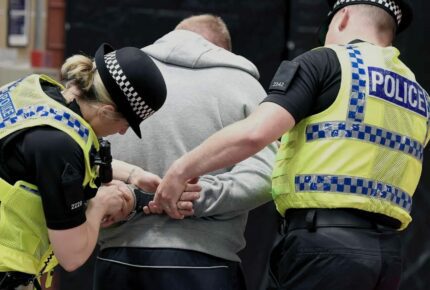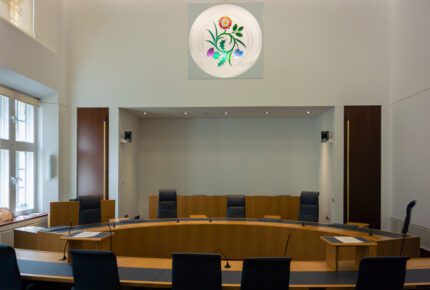

Membership of proscribed organisations, including terrorist groups, is a grave offence under English law, and the police and other criminal justice institutions treat the offence very seriously as a result. If you or someone you know is facing charges related to this offence, obtaining legal advice as early as possible is critical to your defence strategy. This article will outline the essentials of the offence, such as what constitutes the offence of membership of a proscribed organisation or terrorist group, and discuss the maximum potential sentence you could face. Key elements of the relevant sentencing guidelines will also be examined, along with an explanation of how a solicitor can help mitigate your sentence, if you are found guilty after your trial.
What is the offence of membership of proscribed organisations / terrorist groups?
The offence of membership of proscribed organisations or terrorist groups in England is primarily governed by the Terrorism Act 2000. According to this legislation, it is an offence to belong to, or profess to belong to, a proscribed organisation. A proscribed organisation is one that is listed as a terrorist organisation by the Home Secretary due to its involvement in terrorism. For the prosecution to secure a conviction, they must prove several elements beyond a reasonable doubt:
- The organisation in question is officially proscribed.
- The defendant is a member of or claims to be a member of this proscribed organisation.
- There is sufficient evidence to show the defendant’s membership in the organisation.
In cases involving terrorism offences, the police have extended powers of detention compared to other crimes. Typically, for most offences, police can hold a suspect for up to 24 hours before they must either charge or release them. However, for terrorism-related offences, this period can be significantly longer. With proper authorisation, usually from a senior police officer or a judge, suspects can be held for up to 14 days without charge. This extended detention period allows for more thorough investigation, given the complex nature of terrorism cases and the potential need for extensive evidence gathering or international cooperation.
Examples of the offence include:
- Being an active member of a terrorist group listed under the Terrorism Act 2000.
- Claiming to be part of a proscribed terrorist organisation.
- Participating in the meetings or activities of a proscribed organisation.
- Recruiting members for a proscribed terrorist group.
- Providing training or attending training sessions for proscribed terrorist activities.
- Fundraising for a proscribed terrorist organisation.
- Distributing propaganda materials for a proscribed group.
- Acting as a spokesperson for a proscribed organisation.
- Harbouring or concealing members of a proscribed terrorist group.
- Providing financial or logistical support to a proscribed organisation.
Seek expert legal advice as soon as possible if you are facing charges related to membership of proscribed organisations or terrorist groups – early advice is critical to how your trial will play out and the likelihood of your defence being successful.
What is the maximum sentence for membership of proscribed organisations / terrorist groups?
According to the Sentencing Council guidelines, the maximum sentence for membership of a proscribed organisation or terrorist group in England and Wales is as follows:
- 10 years’ imprisonment
- An unlimited fine
- A combination of both penalties
Note that the actual sentence imposed will depend on various factors, including the specific circumstances of the case, the defendant’s role and level of involvement in the organisation, and any aggravating or mitigating factors presented during trial. Each case is unique, and the courts will consider all relevant aspects before determining the appropriate sentence. If you are facing such charges, it is important to seek legal advice from a qualified criminal defence solicitor who can provide guidance based on your individual situation, not based on the broader guidelines.
What factors influence the sentencing of membership of proscribed organisations / terrorist groups?
When it comes to sentencing individuals for membership in proscribed organisations or terrorist groups, judges consider a complex interplay of factors to ensure justice is served appropriately. The severity and nature of the individual’s involvement play a crucial role, with judges examining the degree of participation, duration of membership, specific actions taken, and the level of intent and knowledge about the organisation’s illegal activities. The actual or potential harm caused by the individual’s involvement is also a significant consideration, as the court assesses the threat posed to public safety and national security.
Judges weigh various aggravating factors that may increase the severity of the sentence. These include the use or encouragement of violence, targeting vulnerable populations, prior criminal history (especially related offences), evidence of recruiting or radicalising others, and possession of weapons or explosives. Conversely, mitigating factors can lead to more lenient sentencing. These may include limited involvement or a minor role in the organisation, lack of prior criminal record, evidence of coercion or duress in joining, demonstrable steps taken to disengage from the group, and cooperation with law enforcement.
Personal circumstances of the offender are also taken into account. Factors such as age and maturity at the time of the offence, mental health issues or other personal hardships, and character references can influence the court’s decision. Additionally, the offender’s plea and expressions of remorse carry weight in sentencing. An early guilty plea, genuine expressions of regret, and efforts toward rehabilitation or deradicalization may lead to reduced sentences.
The overarching goal of the sentencing process is to balance punishment with rehabilitation, deter future criminal activity, and protect public safety. Judges strive to ensure that sentences are proportionate to both the individual circumstances of the offender and the nature of the offence. This nuanced approach allows for a fair and just application of the law, taking into account the unique aspects of each case while maintaining the integrity of the legal system and societal safety.
How can a solicitor help with reducing the sentence for membership of proscribed organisations / terrorist groups?
Facing charges for membership of proscribed organisations or terrorist groups is a profoundly serious matter that can carry severe consequences. Below are some key reasons why securing a solicitor is essential in such cases, what to seek in a solicitor, and what to expect during your initial consultation.
Reasons to get a solicitor for membership of proscribed organisations/terrorist groups offences include:
- Expert Knowledge: A solicitor with experience in terrorism-related charges will possess the legal expertise necessary to dissect all intricacies of the case.
- Mitigating Factors: Solicitors can argue mitigating circumstances, such as lack of prior criminal history or coercion, which may influence the court to reduce the sentence.
- Plea Bargains: An experienced solicitor may negotiate plea bargains or lesser charges, which could result in a reduced sentence.
- Procedural Accuracy: Solicitors ensure that all legal procedures are correctly followed, safeguarding against any procedural errors that could potentially harm your case.
- Representation in Court: Effective representation during trial and sentencing hearings could significantly impact the eventual outcome, advocating for reduced penalties where applicable.
What you should look for when choosing a solicitor:
- Specialisation: Look for solicitors who specialise in criminal defence with a focus on terrorism-related charges.
- Experience: Seek solicitors with a proven track record in handling complex cases involving membership of proscribed organisations or terrorist groups.
- Client Testimonials: Positive reviews and testimonials from previous clients can provide insights into the solicitor’s effectiveness and reliability.
- Professional Affiliations: Membership in professional bodies such as the Law Society can indicate a solicitor’s competence and commitment to legal standards.
- Communication Skills: A good solicitor should communicate complex legal matters clearly and maintain regular updates regarding your case.
When you first meet with a solicitor regarding charges of membership in a proscribed organisation or terrorist group, you can expect a thorough case assessment. The solicitor will carefully review all aspects of your case, including the specific charges brought against you, the evidence presented by the prosecution, and any prior interactions you may have had with law enforcement. This initial meeting will likely involve a detailed discussion about the circumstances surrounding your alleged involvement with the organisation, your personal background, and any potential mitigating factors. The solicitor will explain the legal process ahead, outline possible defence strategies, and discuss the potential outcomes of your case. They may also inquire about any witnesses or evidence that could support your defence. Additionally, the solicitor will clarify their fee structure and explain the concept of attorney-client privilege to ensure you feel comfortable sharing all relevant information. This comprehensive initial consultation serves as the foundation for building a strong defence strategy tailored to your specific situation.
Where to get more help
Concerns about the sentence you might receive for membership of proscribed organisations or terrorist groups can be overwhelming, and you likely have many pressing questions. This is a highly political crime and the impact of being found guilty of it will impact your personal and professional life. For further assistance and guidance on sentencing and other matters related to this offence, contact the team at Stuart Miller Solicitors today. Our approachable and supportive staff are here to help with your case, regardless of your situation or any involvement in the alleged activities.
OUR COMMITMENTS TO YOU:
-
Responsive
A legal expert will consult you within 24 hours of making an enquiry.
-
Empathetic
We will always treat you with trust, understanding and respect.
-
Specialised
Your case will be handled by an expert who specialises in your type of offence.
-
Proactive
We will take early action to end proceedings as soon as it is practically and legally possible to do so.
-
Engaged
You will be kept updated on your case at all times. We will provide a named contact available to answer your questions.
-
Caring
We understand this is a difficult and stressful time for you and your family. Our team will support you every step of the way.
-
Tenacious
We will never give up on your case. We fight tirelessly to get you the best possible outcome.
